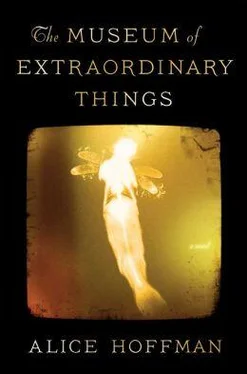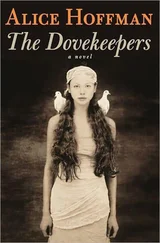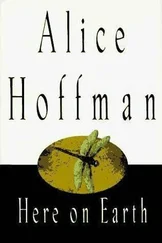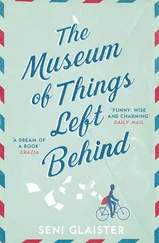The street was desolate, and the gang edged closer. Coralie felt her heart grow heavy, but, as it turned out, the liveryman chased off the mob with a few well-aimed rocks. He was a burly, silent man who had spent hard time in Sing Sing for crimes he wouldn’t disclose. After the mob dispersed, he came to check on Coralie. She said she’d like some air and leapt from the carriage so that she might stand beside him, though she knew her father would have disapproved of her doing so. The soles of her boots were soon dyed red with butchers’ blood, which ran between the paving stones.
“I’d never eat a living creature,” the carriage man said, surprising Coralie with his ease of conversation, for he’d never spoken to her before this day. “They’ve got as much soul as we do. More if the truth be told.” A sparrow perched above them in a leafless plane tree and sang boldly. “See there.” The hired man pointed with his thumb. “That’s heart and soul.”
When the Professor returned empty-handed they continued on to the morgue at Bellevue, a dim and wretched place that the liveryman referred to as the bone house when he was instructed to set off in the hospital’s direction. To gain entrance, Sardie would state that they were looking for his poor daughter’s beloved mother, who had disappeared. They had done so before, much to Coralie’s shame. If they were at first turned away, Coralie would weep and appear distraught; the guards would then pity her and allow them to view the unclaimed dead. This time, however, as they walked up the granite steps, Coralie found she could not cry. She had begun to fear they would be punished for their conniving ways if indeed God saw and knew all of mankind’s deeds. Perhaps there was a hell below this earth, and they would burn in it for all the lies they’d told.
The Professor took Coralie aside when he saw her difficulty. “If you cannot cry, then I can see to it that you’re able,” he said. He caught her arm and squeezed it affectionately. “Not that I would ever have cause to do so.”
Coralie then understood what she must do. She pinched her own arm, hard, bringing bright tears to her eyes.
Once allowed in, they searched the morgue, though the smell was overpowering, and the contents horrifying. The Professor gave Coralie his linen handkerchief to place over her nose and mouth. There were several women laid upon the marble slabs, one so covered with blue-tinged bruises Coralie quickly turned from the sight. Another section was filled with children, unclaimed and unknown, their still, pale forms veined with cold, but, like ice, they appeared to be melting, their features pulled into expressions of sorrow. “None of these will do,” her father muttered. Back in the street, Coralie felt faint. She no longer thought she would have to pinch herself if she were again commanded to cry today.
They went on to an area called Frenchtown, where women and children were sold by the hour for sexual use and pleasure. There were evenings when only clients in formal evening clothes were allowed in and the whores were trained to speak with men of the upper classes and wore the most elegant and revealing gowns. Some of the houses were fitted with velvet couches and beds covered with silk duvets; others were filthy, dimly lit, tragic storehouses of sorrow and flesh. Within such places, some of those on sale were considered more desirable if they possessed abnormalities, exactly what the Professor wished to find. Coralie waited in the carriage while her father visited two of these wretched houses, one where boys were clothed in dresses, wearing rouge and color on their lips, the other a grim tenement filled with girls dolled up in oversized gowns, costumes that only served to show how very young they were. Neither house was the least bit interesting to the Professor, and he left both quickly enough. But at the second house he was followed by a heavyset man who had with him a child no older than six. The man did his best to get the Professor’s attention as he toted the girl in a rope sling, for she had neither arms nor legs.
“Here’s what you’re looking for,” the man shouted. “She’ll be to your liking. You can have her for a fair price.”
The child had begun to wail, but one smack from her caretaker and she hushed quickly enough. She appeared too stunned to cry any more. The Professor shook his head and stalked away. Still, the brutal man called after him. “You said you wanted a monster. She’s right here! Look no further.”
“What will happen to the child?” Coralie asked after they had climbed into the carriage, escaping the stranger’s escalating rage.
“Go on,” the Professor told the liveryman.
Coralie cast a swift backward glance to watch the child dragged away to what was surely a dreadful fate. The Society for the Prevention of Cruelty to Children had tried to stop children from being allowed to beg, or solicit alms, or be in shows of acrobatics or be included in any immoral or indecent exhibition, especially those presenting an unnatural physical formation. But, in truth, such laws were rarely enforced. Children were not recognized as having rights.
“It’s not our business,” the Professor remarked, sure of himself. “We are here on behalf of science.”
“Perhaps it should be,” Coralie protested. “I could take care of her. It would be no trouble.” The tears that had refused to fall before came freely to her now, though she was quick to wipe them away.
“If you tried to right all the wrongs in the world you’d exhaust yourself in under an hour. This is God’s business.”
“Is it?” Coralie wondered aloud. “Is it not our business to help in God’s work?”
“Our business is to acquire a creature that will draw a crowd, and thereby pay for food and coal and the shoes upon your feet.”
When Coralie strained to see behind them now, the street was empty. The man and his charge had vanished, engulfed by the darkness. It seemed as though they had left God’s sight in this part of the city where human beings were bought and sold as if they were sheep ready for market. “It should be against the law for men to be so cruel,” Coralie pronounced.
“That man is her father.” The Professor turned to his daughter, so that he would not be misunderstood. “And to all the world, he’s well within his rights.”

The Professor had already set in motion his plan for their renewed success. In the first months of 1911 a rumor had begun, one that had been formed inside the Professor’s mind. A monster had settled in the Hudson River, and if a man stood on the banks he might spy it swimming in the dark. Or perhaps it could be sighted at the first light of daybreak, when the water was silver and still. The first to take up the story were two boys fishing for their families’ suppers. They vowed a strange river creature had stolen the catch from their lines; when questioned by the police, each swore it wasn’t a shark, which were abundant in New York Harbor, some reaching fourteen feet long. True, they’d seen a flash of scales set upon the creature’s spine, but it was something entirely different, a being that was dark and unfathomable, almost human in its countenance, with fleet, watery movements. A panic went up. Constables in rowboats patrolled the shores, from the docks downtown all the way up to the Bronx. Several men on the ferries on the four lines which ran from Twenty-third Street to New Jersey leapt into the frigid depths as if they could walk on water, insisting they had heard a woman’s voice call to them, convinced someone had been drowning.
Coralie was the monster that had been sighted from the shoreline, the mysterious creature men wished to either rescue or trap. All she had done was show a glimpse of what might be possible, a waterlogged and furtive river-fiend that had drifted out of nightmares and into the waterways of the city of New York. Seventeen sightings had been recorded in the papers. Each one corresponded to a time when Coralie swam farther north in the cold, gray river, drifting among the eels, just now arising from the sediment after a winter’s sleep, and keeping pace alongside the striped bass that spawned upriver, certain of herself even in uncertain tides. In the mornings she would sit in a pool of sunlight on the back porch so she might read about herself in the Sun or the Times, a huge beast with teeth not unlike a shark’s and green scales, who was in reality nothing more than a hundred-and-twenty-pound girl who favored simple black dresses and leather-buttoned shoes and was never seen without her gloves.
Читать дальше













